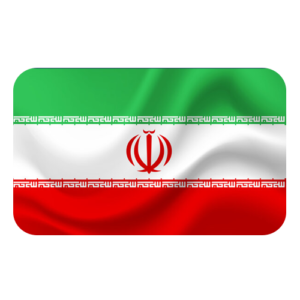Enforcement of Foreign Judgments in the United Arab Emirates: A Comprehensive Guide with Consultation from a Lawyer in Iran and Tehran
Introduction
The enforcement of foreign judgments in the United Arab Emirates (UAE), particularly in key cities like Dubai and Abu Dhabi, is a complex and critical legal matter for businesses, investors, and individuals involved in international disputes. The UAE, as a global commercial and financial hub, benefits from an advanced legal system, international treaties, and modern judicial infrastructure, creating a conducive environment for enforcing judgments issued by foreign courts or arbitral tribunals. However, this process presents numerous challenges due to legal, linguistic, and cultural differences. Collaborating with a lawyer in Iran and Tehran, such as Khalil Asayesh, who is fluent in Persian and deeply familiar with local laws, can minimize these complexities and make the enforcement process more efficient.
This article provides a comprehensive examination of the conditions, procedures, and requirements for enforcing foreign judgments in the UAE. The primary focus is on explaining the legal framework, the role of the 1958 New York Convention, differences in the judicial systems of Dubai and Abu Dhabi, and the importance of consulting a lawyer in Iran and Tehran. The goal is to provide readers with a thorough understanding of the foreign judgment enforcement process and its associated legal considerations.
What Are Enforceable Foreign Judgments in the UAE?
The enforcement of foreign judgments in the UAE is governed by the UAE’s Civil Procedure Code (Federal Law No. 11 of 1992) and international treaties. These laws establish strict conditions for the recognition and enforcement of foreign judgments, compliance with which is essential for a successful process. A lawyer in Iran and Tehran can analyze these conditions legally to facilitate the enforcement process.
Main Conditions for Enforcing Foreign Judgments
-
Finality of the Judgment:
Foreign judgments must be final and non-appealable in the issuing country, meaning all avenues for appeal or objection in the originating country’s judicial system have been exhausted. This condition ensures the judgment’s legal stability and eliminates the possibility of subsequent changes. UAE courts typically review a certificate of finality issued by the judicial authorities of the originating country to verify this condition. -
Validity of the Issuing Authority:
The judgment must be issued by a recognized judicial or arbitral authority with international legal legitimacy. This includes official courts in countries with treaties with the UAE or reputable arbitral institutions such as the International Chamber of Commerce (ICC), the London Court of International Arbitration (LCIA), or the Dubai International Arbitration Centre (DIAC). The authority’s validity is confirmed through the review of documents and international treaties. -
Non-Contravention of Public Order:
The content of the judgment must not conflict with Sharia law, ethical principles, or public policies of the UAE. Public order in the UAE encompasses values rooted in Islamic Sharia and national laws. For instance, judgments involving unauthorized interest (riba) or matters contrary to public morality may be rejected. This condition is one of the most challenging aspects of enforcing foreign judgments, as the interpretation of public order can vary across cases. -
Principle of Reciprocity:
The issuing country must allow the enforcement of UAE judgments within its territory. This principle implies a mutual legal relationship between the UAE and the originating country. The UAE has bilateral treaties or judicial precedents for reciprocal enforcement with countries such as the United Kingdom, France, India, and China. In the absence of an explicit treaty, UAE courts may examine practical evidence of the enforcement of UAE judgments in the originating country.
Importance of Legal Analysis
Meeting these conditions requires precise legal analysis, which is only feasible with the assistance of a specialized lawyer. A lawyer in Iran and Tehran, with knowledge of international treaties and UAE judicial practices, can identify the strengths and weaknesses of a case and devise an appropriate strategy for enforcing the judgment. This analysis involves reviewing documents, treaties, and judicial practices related to the originating country.
Types of Enforceable Judgments
Foreign judgments enforceable in the UAE are divided into various categories, each with its own characteristics and requirements. Understanding these categories is essential for selecting the appropriate legal pathway.
-
Civil Judgments:
These include disputes related to financial matters (e.g., personal debts), family issues (e.g., alimony, custody, or divorce), and property disputes (e.g., ownership or lease conflicts). Civil judgments, due to their diverse nature, require careful review for compliance with UAE’s Sharia laws and public order. For example, family-related judgments may face challenges due to differences in Sharia-based laws between countries. -
Commercial Judgments:
This category covers disputes involving commercial contracts, corporate litigation, bankruptcy, and commercial debts. The UAE, as a global commercial hub, places special emphasis on enforcing commercial judgments, particularly in disputes related to international contracts, cross-border trade, and investments. These judgments are typically handled in specialized courts such as the Dubai International Financial Centre (DIFC) or the Abu Dhabi Global Market (ADGM). -
International Arbitral Awards:
Arbitral awards issued under the 1958 New York Convention, such as those from the ICC, LCIA, or DIAC, are among the most significant types of foreign judgments enforceable in the UAE. The UAE’s membership in the New York Convention provides a streamlined process for enforcing such awards. -
Specific Criminal Judgments:
These include cases such as the restitution of assets derived from crimes, financial offenses, or money laundering judgments, provided they align with UAE laws. Enforcing criminal judgments typically requires coordination between the judicial and law enforcement authorities of both countries and may involve extradition treaties.
Steps for Enforcing Foreign Judgments in the UAE
Enforcing foreign judgments in the UAE is a multi-stage process that requires strict adherence to legal formalities. Collaboration with a lawyer in Iran and Tehran, such as Khalil Asayesh, can make these steps more efficient and precise.
-
Official Translation of Documents
All documents related to the judgment, including the judgment text, certificate of finality, and evidence of service, must be translated into Arabic by an official translator approved by the UAE Ministry of Justice. Additionally, the documents must be authenticated by the authorities of the originating country (e.g., the Ministry of Foreign Affairs or the UAE embassy) and sometimes by UAE authorities. This process is critical to ensuring the authenticity and validity of the documents. Any deficiency in translation or authentication may lead to the rejection of the request, making the lawyer’s oversight of this stage crucial. -
Filing a Petition
The petition for enforcement must be filed by a licensed lawyer in the UAE at the competent court (e.g., general courts, DIFC, or ADGM). The petition must include legal details of the judgment, arguments for compliance with UAE laws, and necessary evidence. Required documents include the original or certified copy of the judgment, certificate of finality, evidence of proper service, and officially translated documents. Precise drafting of the petition, in accordance with UAE judicial requirements, plays a key role in the process’s success. -
Court Review
The UAE court examines the issuing authority’s jurisdiction, compliance with legal formalities (e.g., proper service to the opposing party), non-contravention of public order, and the existence of reciprocity. This review is generally limited to procedural aspects, and the court does not delve into the judgment’s substance unless there is a clear conflict with public order. This stage may involve hearings or the submission of additional evidence, particularly if the opposing party objects to enforcement. -
Issuance of Enforcement Order
Upon approval, the court issues an enforcement order, granting the foreign judgment the status of a domestic judgment. The enforcement is carried out by judicial officers, such as police or enforcement agents, and may involve asset seizure, bank account freezes, or debt repayment obligations. In some cases, coordination with financial or property institutions is necessary to implement the order.
Differences in Enforcement in Dubai and Abu Dhabi
Dubai and Abu Dhabi, as the UAE’s primary legal and commercial hubs, have distinct judicial systems that influence the enforcement of foreign judgments. Selecting the appropriate judicial system depends on the nature of the dispute, the location of assets, and the case’s complexity.
Enforcement in Dubai
Specialized Courts:
The Dubai International Financial Centre (DIFC) follows a common law system (English law) designed for financial, commercial, and international arbitration disputes. The DIFC, with its judicial independence, use of English, and international judges, is attractive to foreign investors. It is particularly suitable for enforcing arbitral awards under the New York Convention.
Features:
The process in the DIFC is faster and more efficient, with judicial practices aligned with international standards. It is ideal for disputes involving international contracts, banking, and cross-border trade.
Advantages:
The DIFC offers transparency and speed, making it suitable for enforcing commercial and arbitral judgments. Additionally, DIFC-issued judgments can be enforced elsewhere in the UAE or abroad.
Enforcement in Abu Dhabi
Specialized Courts:
The Abu Dhabi Global Market (ADGM) also uses a common law system and is suitable for disputes involving large-scale investments, infrastructure projects, and government contracts. Like the DIFC, the ADGM operates in English but focuses more on disputes related to the public sector and strategic projects.
Features:
The process in Abu Dhabi, particularly in general courts, may be more formal and time-consuming. However, the ADGM offers faster procedures for specialized disputes.
Advantages:
The ADGM is suitable for complex disputes, such as arbitration related to oil and gas contracts or infrastructure projects, and enjoys international credibility.
Considerations for Selection
Choosing between Dubai and Abu Dhabi depends on factors such as the location of the opposing party’s assets, the type of dispute, and preferences for language and process speed. A lawyer in Iran and Tehran can analyze these factors and recommend the best judicial pathway. For example, if the opposing party’s assets are in Dubai, the DIFC is the better option, while disputes related to government projects may be more efficiently handled in the ADGM.
Role of the 1958 New York Convention in Enforcing Arbitral Awards
The UAE has been a member of the New York Convention since 2006, significantly facilitating the enforcement of foreign arbitral awards. The Convention provides an international framework for enforcing awards issued by reputable arbitral institutions, such as the ICC, LCIA, or DIAC.
Key Features of the Convention
-
No Substantive Review:
UAE courts do not review the substance of arbitral awards, focusing only on procedural aspects such as the validity of the arbitration agreement, the arbitrators’ jurisdiction, and proper service. This feature makes the enforcement process faster and simpler. -
Broad Coverage:
The New York Convention applies in over 160 countries, meaning arbitral awards from most countries are enforceable in the UAE. -
Efficient Enforcement:
Arbitral awards under the Convention are typically enforced more quickly than judicial judgments due to limited review procedures. -
Procedural Requirements:
To enforce an arbitral award, the original or certified copy of the award, the arbitration agreement, officially translated documents, and evidence of proper service must be provided.
Challenges in Enforcing Arbitral Awards
Despite the Convention’s advantages, certain challenges may disrupt enforcement. Under Article 5 of the Convention, UAE courts may reject an arbitral award in the following cases:
-
Deficiencies in the arbitration agreement, such as lack of consent or valid signatures.
-
Improper service of the award to the opposing party, violating principles of fair procedure.
-
Contravention of UAE public order, such as awards involving riba or unethical matters.
-
Lack of jurisdiction or overstepping of authority by the arbitral tribunal.
A lawyer in Iran and Tehran, such as Khalil Asayesh, with experience in international arbitration, can prevent award rejection by meticulously preparing documents and legal arguments.
Key Tips for Successful Enforcement of Foreign Judgments
To successfully enforce foreign judgments in the UAE, the following principles are essential:
-
Selecting a Specialized Lawyer:
Collaborating with a lawyer in Iran and Tehran, such as Khalil Asayesh, with extensive experience in international disputes and foreign judgment enforcement, increases the likelihood of success. The lawyer can design an appropriate legal strategy and manage the process with precision. -
Accuracy in Document Preparation:
Preparing and submitting valid, officially translated, and authenticated documents is critical to avoiding rejection. A lawyer can ensure compliance with legal requirements by overseeing this process. -
Choosing the Right Judicial System:
Selecting between general courts, DIFC, or ADGM depends on the dispute’s nature and asset location. The DIFC is more suitable for financial and arbitral disputes, while the ADGM is better for infrastructure-related disputes. -
Verifying Reciprocity:
The lawyer must review bilateral treaties or judicial precedents to confirm the existence of a reciprocal relationship between the UAE and the originating country. -
Managing Costs and Time:
The enforcement process can be costly and time-consuming. A lawyer can optimize costs and time by selecting faster pathways, such as the DIFC or arbitration.
Conclusion
The enforcement of foreign judgments in the United Arab Emirates is a professional and feasible process that, with adherence to legal requirements and collaboration with a specialized lawyer, can yield successful outcomes. Dubai and Abu Dhabi, with their advanced judicial systems like the DIFC and ADGM, and support for the 1958 New York Convention, provide a suitable platform for enforcing foreign judgments and arbitral awards. Khalil Asayesh, a lawyer in Iran and Tehran fluent in Persian and English and knowledgeable in local laws, can simplify legal complexities for Iranian investors.
For success in this process, selecting the appropriate judicial system, meticulously preparing documents, and seeking early consultation with a specialized lawyer are essential. This approach not only increases the likelihood of successful enforcement but also protects your rights and investments in the UAE’s dynamic market. With careful planning and professional legal services, you can confidently enforce your foreign judgments in the UAE.




